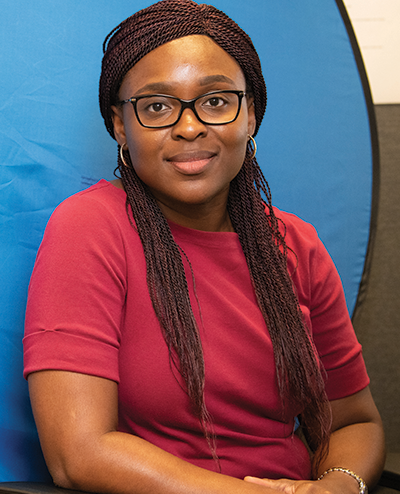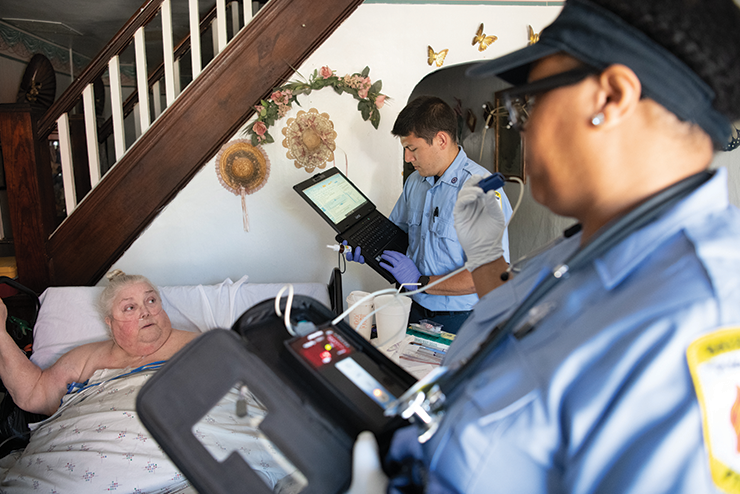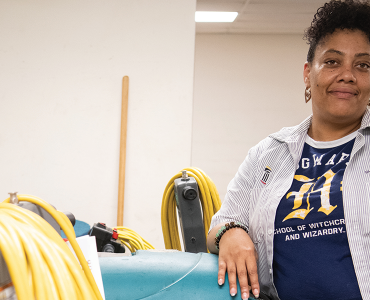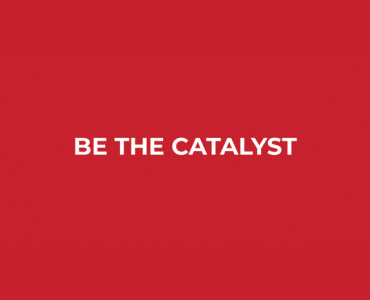reshly discharged from a hospital, patients can be at their most vulnerable. For someone who is ailing, even bedridden, and lives alone, there’s rarely a more welcome visitor than a member of a new health care team that makes house calls to ease that transition. Just ask Theresa Springfield.
“They’re awesome,” says Springfield, warmly describing the health care providers who have made a series of visits to her West Baltimore rowhouse after two separate hospitalizations during the spring and summer. “It makes a person feel like they care.”
The visits, which take place during a 30-day period after each discharge, are conducted by a paramedic accompanied by a nurse-paramedic or by two medics. These employees of the Baltimore City Fire Department (BCFD) make house calls in six ZIP codes near the University of Maryland, Baltimore (UMB) as part of a pilot program designed to improve city residents’ health.
UMB is among several partners in the program, Mobile Integrated Healthcare–Community Paramedicine (MIH-CP), that is led by the University of Maryland Medical Center (UMMC) in collaboration with BCFD and the city of Baltimore. MIH-CP utilizes a comprehensive, free, multidisciplinary care model for patients that provides care outside the hospital setting and is designed to reduce health disparities, decrease emergency department visits, and prevent hospital readmissions.
Medical director for MIH-CP is David Marcozzi, MD, MHS-CL, FACEP, associate professor in the Department of Emergency Medicine at the University of Maryland School of Medicine (UMSOM) and assistant chief medical officer for acute care services at UMMC. “As an emergency physician, I see firsthand the challenges West Baltimore citizens face to stay healthy. The work our MIH team is doing to identify and address the multifaceted issues is truly innovative,” he says.
The program consists of separate efforts to address these challenges: Minor Definitive Care Now focuses on pre-hospital health care delivery; Transitional Health Support improves the transition of care from hospital to home. Both are funded by a grant from the Maryland Health Services Cost Review Commission.
Transitional Health Support Program: Patient Needs Assessment
Nearly 80 percent of the 340 patients enrolled from June 2018 through May 2019 had medication-related issues.
Credit: Mobile Integrated Healthcare–Community Paramedicine
Transitional Health Support fields a BCFD two-person team that, in turn, relies upon an operations center supported by UMMC. At the center, community health workers address patients’ needs by collaborating with BCFD nurses, UMMC nurse practitioners, physicians from UMSOM, social workers from the University of Maryland School of Social Work, and pharmacists from UMMC and UMB; the pharmacists are linked through the e-Health Center at the University of Maryland School of Pharmacy (UMSOP), which provides comprehensive medication reviews using telehealth technologies.
These technologies, compliant with federal privacy regulations, allow the pharmacists and UMSOP students on clinical rotations at the e-Health Center to remotely take part in the patients’ care.
Some 340 city residents were enrolled in Transitional Health Support in the first year, from June 1, 2018 through May 31, 2019. A patient needs assessment found medication management to be the top issue facing patients.
Among them was Springfield, who suffers from multiple chronic conditions including diabetes. She takes a pain medication and insulin for diabetes. After being discharged in April, Springfield had an insufficient quantity of the pain medication at home, which the MIH-CP pharmacist assisted her in obtaining. As for the insulin, she was at first able to maintain the timing and dosage that physicians had prescribed during her hospitalization.

However, when the neighborhood pharmacy refilled Springfield’s prescription, she realized the dosage no longer matched her regimen.
What to do?
Olufunke “Olu” Sokan, MSPharm, PharmD, intervened.
“I had to look into this,” said Sokan, an advanced practice pharmacist in UMSOP’s Department of Pharmacy Practice and Science (PPS), who was monitoring the case in the e-Health Center. She dealt directly with Springfield’s neighborhood pharmacy, learning it had no new prescription updating her insulin dosages. Sokan contacted the discharging physician for the new prescription.
With it on file, the pharmacy sent the new dosage to Springfield’s home.
Sokan complimented the bedridden patient’s advocacy on her own behalf. And Springfield praised Sokan for facilitating a same-day delivery. “She went above and beyond for me. She is like an earth-angel who has reached out to help me.”
She went above and beyond for me. She is like an earth-angel who has reached out to help me.”
PATIENT THERESA SPRINGFIELD ABOUT OLU SOKAN, PHARMACIST IN UMB’S E-HEALTH CENTER
Transitional Health Support targets patients with chronic diseases, who require frequent hospitalizations. Working with its operations center, UMSOP’s pharmacists can help address the barriers that people encounter in their bid to achieve improved health. For instance, a person who has multiple chronic conditions may see several providers who don’t communicate with each other. To prevent drug interactions and avoid duplication in therapy, the e-Health pharmacist conducts a complete medication review and reconciliation.
“UMSOP pharmacists help with closing communication gaps between multiple providers and ensure the seamless transfer of medical and medication information from hospital providers to community providers. In addition, we provide the critical medication management expertise to optimize medication use and achieve positive outcomes,” said Sokan.
The e-Health Center is housed in UMSOP’s Center for Innovative Pharmacy Solutions. Its director, Magaly Rodriguez de Bittner, PharmD ’83, BCPS, CDE, FAPhA, FNAP, notes that the pilot program that cared for Springfield is one of only a few of its kind being tested in the nation. “The multidisciplinary team assigned to each patient in the Transitional Health Support initiative works diligently to not only address his or her health care needs, but also to examine the social and economic factors that might affect patients’ access to quality health care,” said Rodriguez de Bittner, professor in PPS and associate dean for clinical services and practice transformation, “and, as a result, patients’ ability to achieve optimal health outcomes.”




